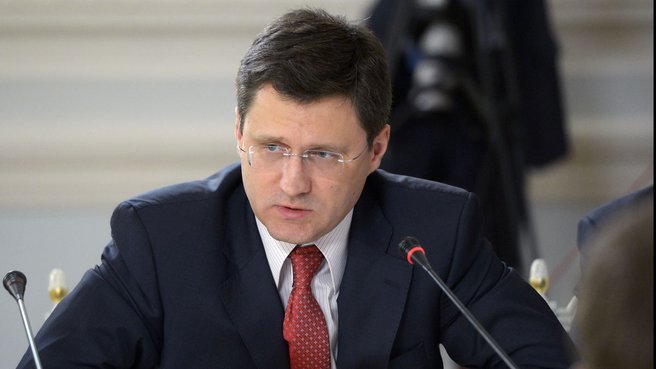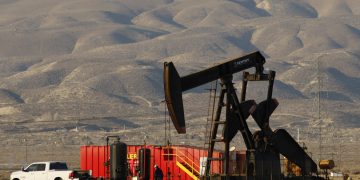Oil Price Has Risen Sharply after Novak’s Words About the Reduction in Production in Russia
Commodity prices resumed growth after Deputy Prime Minister Alexander Novak said that Russia plans to cut oil production by 500 thousand barrels per day in March
The cost of April futures for Brent crude on the London ICE Futures exchange rose by 2.78% and rose to $86.85 per barrel, according to data from the site at 12:03 Moscow time. The last time Brent traded at these levels was on January 31st.
The price of futures for WTI crude oil for March delivery on the New York Mercantile Exchange rose by 2.77% to $80.22 per barrel.
Quotes turned to growth after the morning decline after Deputy Prime Minister Alexander Novak told reporters that Russia intends to cut oil production by 500 thousand barrels per day in March. According to Novak, this “will contribute to the restoration of market relations.”
The Russian Deputy Prime Minister also said that now Russia is fully selling the entire volume of oil produced. However, Novak again reminded that those who directly or indirectly adhere to the principles of the “price ceiling” will not be supplied with raw materials.
BCS World Investments drew attention to the lack of details about which companies will reduce production and to what extent. “If we take 2020 as an example, when production was reduced as part of the OPEC + deal, then the largest volumes of falling production fell on Bashneft and Slavneft. But Gazprom Neft and NOVATEK suffered the least,” the investment company recalled.
“The announced decline in production is lower than expected: restrictions on the export of petroleum products could lead to a reduction in production by 0.7 million barrels per day,” said Valery Veisberg, director of the analytical department of the Region investment company.
He clarified that it is still difficult to say what the reduction in production will lead to – to a reduction in refining and export of petroleum products or to a reduction in the export of crude oil.
According to Veisberg, in the second case, buyers of Russian Urals oil may agree to a slight reduction in the discount to Brent.
“However, the increase in Brent quotes observed on the market is clearly excessive for the announced reduction: 0.5 million barrels per day is less than half a percentage point of global consumption, and this volume can be replaced by an increase in production, for example, in Nigeria,” the expert concluded.
Earlier, Kommersant wrote that in November, even before the introduction of the price ceiling and the EU oil embargo, Russia produced an average of 1.487 million tons of oil per day (this is equivalent to 10.9 million barrels per day). In December, after the introduction of restrictions, production in the country remained almost unchanged and remained at the level of 1.486 million tons (10.89 million barrels per day). In January, production, according to preliminary data, decreased to 1.481 million tons per day (slightly less than 10.86 million barrels per day). This is just 0.4% below November 2022 levels.







